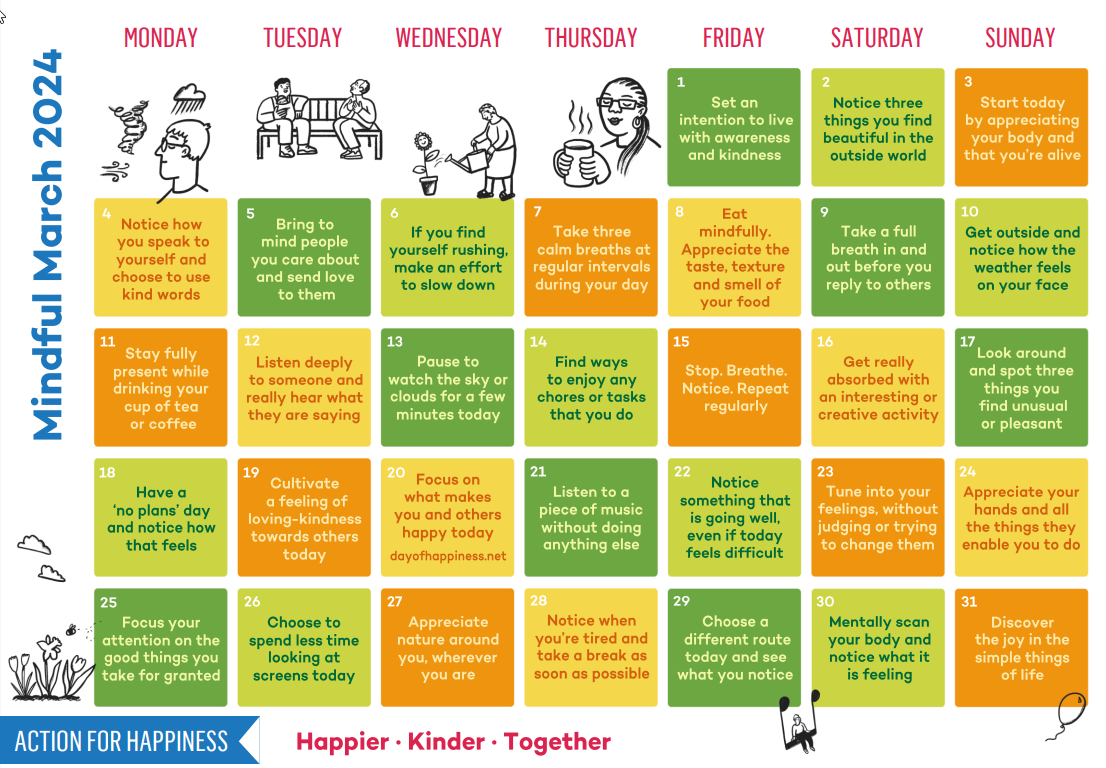Celebrate International Happiness Day: Spark Joy
Spark Joy on International Happiness Day
Key Highlights
- International Day of Happiness is celebrated on March 20th every year
- It was established by the United Nations General Assembly to promote happiness and well-being worldwide
- The day aims to raise awareness about the importance of happiness and its impact on individuals and societies
- International Day of Happiness promotes sustainable development goals and encourages a balanced approach to economic growth
- The celebration involves various activities and initiatives to spread happiness and positivity
- The future of International Happiness Day holds the potential for global impact and positive change
Happiness is a universal goal that brings joy and fulfillment to people's lives. It is a fundamental human desire that transcends borders and cultures. While happiness is a personal experience, celebrating it on an international scale can create a ripple effect, influencing societies, economies, and well-being worldwide. International Day of Happiness, observed on March 20th every year, is an occasion dedicated to recognizing and promoting happiness as a global pursuit by all 193 United Nations member states.
The International Day of Happiness was established by the United Nations General Assembly in 2012 to acknowledge the significance of happiness in the lives of individuals and societies. It serves as a reminder that happiness is not only a personal goal but also a collective responsibility. This day encourages people to spread positivity, prioritize well-being, and work towards a happier and more sustainable world that enhances the lives of people.
On this day, people from all walks of life come together to celebrate happiness and engage in activities that promote well-being. From social media campaigns to community events, International Day of Happiness provides an opportunity for individuals to make a positive impact and inspire others to prioritize happiness in their lives. One way to share happiness with others is through social media, allowing people to spread their ideas and activities that bring joy all around the world within seconds.
Understanding International Happiness Day
International Happiness Day, also known as the International Day of Happiness or World Happiness Day, is an annual observance celebrated on March 20th. It is a global initiative led by the United Nations General Assembly to promote happiness and well-being as essential aspects of human life. This day, also known as World Happiness Day, serves as a reminder to individuals, communities, and governments to prioritize happiness and work towards creating a happier and more inclusive world.
The Origin and Purpose of Celebrating Happiness
The idea of celebrating happiness on an international scale was introduced by Jayme Illien, the founder of the United Nations New Economic Paradigm project and 'happytalism.' In 2011, Illien proposed the concept of International Happiness Day to the United Nations General Assembly, emphasizing the need to prioritize happiness in the economic development of all countries and public policy.
The General Assembly agreed with the proposal and officially established International Happiness Day in 2012. The purpose of this day is to raise awareness about the importance of happiness as a fundamental human goal and to encourage nations to incorporate happiness into their public policies. By celebrating happiness, the United Nations aims to promote a more balanced approach to economic growth that focuses on sustainable development, poverty eradication, and the well-being of individuals and communities, as recognized by the UN General Assembly.
How International Happiness Day Promotes Global Well-being
International Happiness Day plays a crucial role in promoting global well-being by highlighting the significance of happiness, as measured by Gross National Happiness, in people's lives and advocating for a balanced approach to economic growth. The celebration of this day aligns with the United Nations' Sustainable Development Goals, which aim to improve the quality of life for all individuals and ensure a sustainable future.
By emphasizing the importance of happiness, International Happiness Day encourages governments, organizations, and individuals to prioritize well-being in their decision-making processes. It promotes the idea that true progress goes beyond economic indicators and includes factors such as social cohesion, environmental sustainability, and mental health.
International Happiness Day also serves as a platform to raise awareness about the importance of public policy in fostering happiness and well-being. It encourages governments to develop policies that promote social equality, access to education and healthcare, and opportunities for personal growth. By prioritizing happiness, societies can create a more inclusive and balanced approach to development that benefits all individuals.
International Happiness Day, also known as the International Day of Happiness or World Happiness Day, is an annual observance celebrated on March 20th.
The Role of Trauma Therapy in Finding Happiness
Trauma therapy plays a crucial role in helping individuals overcome past experiences and find happiness. It recognizes that trauma can have a significant impact on a person's mental health and well-being. By addressing and processing trauma through therapeutic methods, individuals can heal and develop the resilience needed to find happiness in their lives.
Trauma's Impact on Happiness and Well-being
Trauma can have a profound impact on a person's happiness and well-being. It can result in a range of psychological and emotional challenges, such as anxiety, depression, and post-traumatic stress disorder. The healing process involves addressing the underlying trauma and developing coping strategies to navigate the impact it has on daily life.
It is important to recognize that trauma is a universal human experience and that individuals deserve access to trauma therapy and support. By providing resources and therapeutic interventions, individuals can work towards healing and restoring their well-being. Trauma therapy takes a holistic approach, addressing the physical, emotional, and psychological aspects of a person's experience, and helps individuals develop resilience and find joy in their lives.
There are various therapeutic methods that can be employed in trauma therapy, including mindfulness, resilience-building exercises, and other evidence-based practices. These methods aim to empower individuals to process their trauma, develop healthy coping mechanisms, and ultimately find happiness and fulfillment in their lives.
Healing Methods: From Trauma to Joy
Healing from trauma and finding joy in life involves a holistic approach that integrates various therapeutic practices.
Here are some key methods that can help individuals navigate the healing process and cultivate happiness:
- Mindfulness: Practicing mindfulness can promote present moment awareness and reduce stress. It involves focusing on the present moment and accepting one's thoughts and emotions without judgment.
- Resilience-building exercises: Building resilience is crucial in overcoming trauma and finding happiness. Exercises such as journaling, gratitude practices, and positive affirmations can help individuals develop resilience and a positive mindset.
- Therapeutic practices: Engaging in therapeutic practices, such as attachment therapy, emdr, and internal family systems and parts work, can provide individuals with tools and techniques to process trauma and enhance their well-being.
These methods, combined with professional guidance and support, can empower individuals to heal from trauma and cultivate happiness in their lives.


Celebratory Practices Around the World
International Happiness Day is celebrated around the world, embracing cultural diversity and promoting happiness on a global scale. Various celebratory practices and traditions contribute to the collective joy experienced on this day.
Unique Traditions That Promote Happiness
Different cultures have unique traditions and customs that promote happiness and well-being. Here are some examples of celebratory practices from around the world:
- Community engagement: Many communities organize events and activities that bring people together, fostering a sense of belonging and social connection.
- Local customs: Some regions have specific customs that are associated with happiness, such as dancing, singing, or storytelling.
- Happy International Day: Some countries have designated International Happiness Day as a public holiday, allowing people to take a break from their daily routines and focus on happiness.
These traditions highlight the importance of cultural diversity in celebrating happiness and showcase the various ways in which happiness is valued and expressed worldwide.
Community and Individual Activities for Happiness
International Happiness Day encourages both community and individual activities that promote happiness. Here are some examples of activities that individuals can engage in to celebrate happiness:
- Volunteerism: Engaging in volunteer work allows individuals to contribute to their communities and experience the joy that comes from helping others.
- Good deeds: Performing random acts of kindness, such as buying a stranger a cup of coffee or writing a heartfelt note to a loved one, can bring happiness to both the giver and the receiver.
- Personal fulfillment: Pursuing hobbies, engaging in self-care practices, and prioritizing personal well-being can contribute to one's overall happiness and fulfillment.
These activities not only bring immediate happiness but also contribute to long-term well-being and a sense of purpose in life. See the mindfulness calendar below for mindfulness ideas.

Psychological Insights into Happiness
Understanding the psychological aspects of happiness can provide valuable insights into the factors that contribute to overall well-being. Fields such as cognitive psychology, emotional intelligence, and positive psychology shed light on the nature of happiness and how it can be cultivated.
What Makes Us Truly Happy?
The concept of happiness is complex and multifaceted. It encompasses both the emotional experiences in the present moment and the overall satisfaction with one's life. Research in the field of positive psychology has identified several factors that contribute to true happiness:
- Human happiness: Happiness is deeply rooted in human nature and is a fundamental pursuit for individuals across cultures and generations.
- Life satisfaction: Beyond momentary joy, true happiness involves a sense of fulfillment and satisfaction with one's life as a whole.
- Intrinsic values: Prioritizing intrinsic values, such as personal growth, relationships, and meaningful experiences, has been linked to higher levels of happiness.
Understanding these insights can guide individuals in their pursuit of happiness and help them make choices that align with their values and well-being.
The Science Behind Happiness and Mental Health
The study of happiness extends beyond subjective experiences and delves into the neurobiology and psychology of happiness. Neuroscientific research has shown that happiness is associated with the release of neurotransmitters such as dopamine and serotonin, which play a crucial role in mood regulation.
Psychological studies have also highlighted the positive effects of happiness on mental health. Happiness has been linked to decreased levels of stress, anxiety, and depression, as well as improved overall well-being and resilience.
By understanding the science behind happiness, individuals can gain insights into the factors that influence their own well-being and take proactive steps to cultivate happiness in their lives.
Tips for Cultivating Daily Joy
Incorporating daily habits and adopting a positive mindset can help individuals cultivate joy and happiness in their everyday lives. Here are some tips for finding daily joy:
Mindfulness and Its Role in Happiness
Mindfulness practice has been shown to enhance happiness and well-being by promoting present moment awareness and reducing stress. By practicing mindfulness, individuals can cultivate a deeper appreciation for the present moment and experience greater joy in their daily lives.
Simple Acts of Kindness to Spark Joy
Engaging in acts of kindness towards others can not only bring joy to the recipient but also increase one's own emotional well-being. Random acts of kindness, such as offering a helping hand, expressing gratitude, or performing small gestures of kindness, can create a positive ripple effect and contribute to a happier world. Take time to reflect on your own happiness and make a plan to incorporate those things into your daily life.
The Importance of Community in Enhancing Happiness
Community support and social connections play a vital role in enhancing happiness and overall well-being. Building strong relationships and fostering a sense of belonging can contribute to a collective sense of joy and promote individual happiness.
Building Supportive Networks for Well-being
Creating supportive networks and social capital is essential for individual and community well-being. By fostering connections with others, individuals can access social support, resources, and opportunities for personal growth. Peer support, networking events, and community initiatives contribute to the development of a supportive environment that enhances happiness and well-being.
Community Projects That Foster Happiness
Community projects and initiatives that prioritize happiness can create a positive impact on individuals and society as a whole. These projects may involve activities such as promoting mental health awareness, organizing happiness workshops, or implementing policies that support well-being. By working together towards shared goals, communities can create a happier and more inclusive environment for all.


The Future of International Happiness Day
International Happiness Day holds significant potential for global impact and policy objectives. As a growing global movement, it has the power to shape the future by promoting sustainable development and increasing awareness of happiness as a fundamental human right.
Evolving Goals and Global Impact
International Happiness Day continues to evolve and adapt to the changing needs of society. The celebration of this day has the potential to create a global impact by fostering a collective understanding of happiness and well-being. By aligning with sustainable development goals and promoting social awareness, International Happiness Day can contribute to a more equitable and sustainable world.
How We Can Contribute to a Happier World
Individuals can take actionable steps to contribute to a happier world. Here are some ways to make a positive impact:
Actionable Steps
- Practice kindness and empathy
- Volunteer for causes that promote well-being
- Foster positive relationships
- Support initiatives that prioritize happiness
- Cultivate a positive mindset
- Spread positivity through social media
- Practice self-care and prioritize personal well-being
By embracing these actions, individuals can create a ripple effect of happiness and contribute to a happier world.
International Happiness Day serves as a powerful reminder to prioritize joy and well-being worldwide. From understanding the impact of trauma on happiness to celebrating diverse global practices, this day promotes unity and positivity. By embracing mindfulness, spreading kindness, and building supportive communities, we can contribute to a happier future for all. Let's cultivate daily joy through simple acts of kindness and embrace the science behind happiness. Together, let's spark joy not just today but every day, making the world a brighter and more joyful place for everyone!


Frequently Asked Questions
Why is International Happiness Day Important?
International Happiness Day is important because it highlights the fundamental human goal of happiness and promotes well-being on a global scale. It raises awareness about the significance of happiness and encourages individuals and societies to prioritize happiness in their lives.
How Can Individuals Overcome Trauma to Find Happiness?
Overcoming trauma and finding happiness requires a multidimensional approach. Trauma therapy, resilience-building exercises, and self-help methods can help individuals heal and develop the resilience needed to find happiness and well-being.
What Are Some Activities to Celebrate International Happiness Day?
Activities to celebrate International Happiness Day include sharing happiness with others, engaging in acts of kindness, promoting well-being in the community, and spreading positivity on social media. These activities contribute to the collective joy experienced on this day.
Recent Posts
Similar Posts
At Healing Our Trauma we know that you want to be on a path to recovery and restoration. In order to do that, you need to address your underlying, unmet needs. The problem is most people don't know where to turn to or how to start which makes you feel frustrated and stuck. This leads some to want to quit. We believe in your resilience and the possibility of reclaiming a life marked by strength, growth, and renewed hope. We understand that overcoming trauma is a journey that requires personalized care, empathy, and a safe space for healing.
So, schedule a free evaluation. And in the meantime, sign-up for our Support Newsletter.
Together, we can navigate this journey toward healing, ensuring that you not only survive but thrive in the aftermath of trauma.
Contact Us
816-200-7909
Contact Us
We will get back to you as soon as possible
Please try again later
Insurance Accepted: Aetna (Missouri Only)
Forms of Payment: Cash, Check, Visa, Mastercard, Discover, American Express
Our address
Email: nadirah@healingtraumakc.com
Tel: 816-200-7909
12401 E 43rd St S, Independence, MO 64055, United States of America
Work Hours
- Mon - Fri
- -
- Sat - Sun
- Closed




